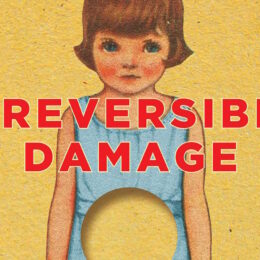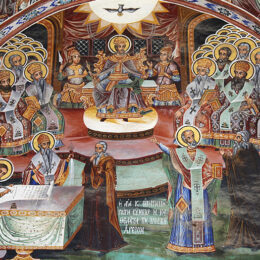Wall Street Opinion Journal THEODORE DALRYMPLE Friday, October 14, 2005
The Victorian militant atheist Charles Bradlaugh, who went on tub-thumping speaking tours, used to stride onto the stage, take out his pocket watch and challenge God to strike him dead in 60 seconds. His survival at the end of the minute was, for him, proof positive that God did not exist.
Very much in the same tradition, Gregory S. Paul, writing in the Journal of Religion and Society, attempts to prove that religious belief, far from contributing to the moral fiber of society, actually causes social disintegration. Mr. Paul is a paleontologist whose previous works have included “Predatory Dinosaurs of the World” and “Dinosaurs of the Air.”
He finds that highly developed countries with the lowest levels of belief in God also have the lowest levels of social pathology and the best physical health; and that the U.S., with its uniquely high level of religious belief, “is so inefficient that it is experiencing a much higher degree of societal distress than are less religious and wealthy, prosperous democracies.”
It is interesting that Mr. Paul’s paper makes no mention of Russia, whose 70-year experiment with enforced atheism did not create a society altogether lacking in social pathology, to put it mildly, and where the life expectancy of men is now appreciably lower than that of credulous countries such as Guatemala.




G. Paulâ??s study is excellent. Why not go read it and see for yourself? http://moses.creighton.edu/JRS/pdf/2005-11.pdf
And, here’s an excellent summary of it in one of the most respected news sources in the world, the London Times: http://www.timesonline.co.uk/article/0,,2-1798944,00.html
All G. Paul did was match crime and social-sickness data with belief in God. It wasn’t even his data. It was data collected previously by some of the most respected data-collecting organizations around.
Go look at his graphs. They are amazing. They leave little doubt that a belief in god is about as safe as riding on a bus filled with the bird flu.
So, being as how god people rule the planet (Jahweh, Jehovah, Mohammed, Vishnu and Buddha, need we say more?), can we expect a Big Black Backlash against Mr. Paul? You bet your bottom dollar we can! Sit back and watch the fireworks fly!!!
Athana, I took a look at your blog and noticed it is a goddess site. This means that your religious view is pagan. A female deity (goddess) implies that creation came out of the diety’s womb. This collapses the creation into the creator (creatoress?) so that no ontological distance or separation exists between them. Goddess and creation are one.
This logical collapse removes all distinctions within the creation as well. A rock or a cow has no more intrinsic value than a human being. In practice what happens is that human life is radically devalued. Thus, while you praise Paul’s (flawed — more on this some other time) study as enlightened, the historical record reveals that the paganism you tout is even more cruel than the secularist upheavels Christendom experienced in the last century (Nazism, Marxism, etc.) that Paul ostensibly champions.
One final note. As moderator of this blog, I have no interest in discussing the paganism of goddess religion except in theological terms, particularly how it differs from Judeo/Christianity. In other words, this is not the place for cheerleading the goddess religion. If you want to advocate for the goddess, your blog will be sufficient to that end and interested readers can go there.
There are several problems with this study, but I would hesitate to dismiss it entirely. In a roundabout way, it makes some valid points.
Part of the problem is that the study makes little effort to distinguish between degrees and brands of “belief” when surely this makes a difference in one’s outlook and values. One may have a vague feeling that there’s “something out there”, but it never really goes beyond that into the realm of worship of a Being actively involved with man. For others, they believe there’s a very interactive Deity, but the things they believe about this Being are repugnant: this Being instead becomes little more than a projection of the person’s fears and hatreds. I’m not sure this qualifies as “faith”.
In a sense the study makes some pointed assertions, though: it’s not enough to simply believe that there IS something out there. History is riddled with atrocities committed in the name of a God who this or that person is certain exists. Little good it did them, apparently. On the other hand, I can vouch from experience that there are agnostics who, for the most part, live law-abiding lives: if they’re not the most virtuous in every respect, they’re certainly capable of a general kind of generosity and forgiveness. So their lack of faith really doesn’t cause undo problems for society in of itself. But of course, great evil has been done in the name of atheism as well.
Overall, while prone to the same errors that “unbelievers” are, for those of faith these errors do seem to be of a lesser degree, and their positive contributions are, generally, more obvious. As in everything else, there are exceptions to the rule.